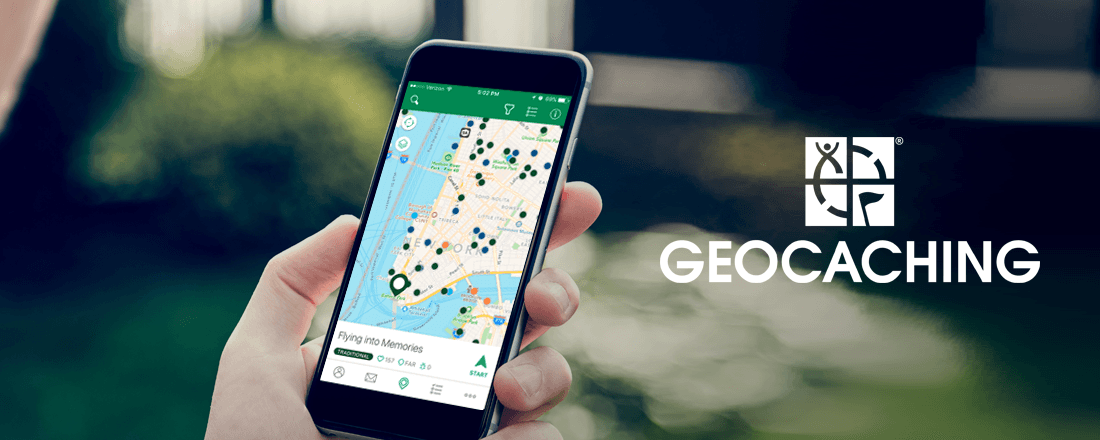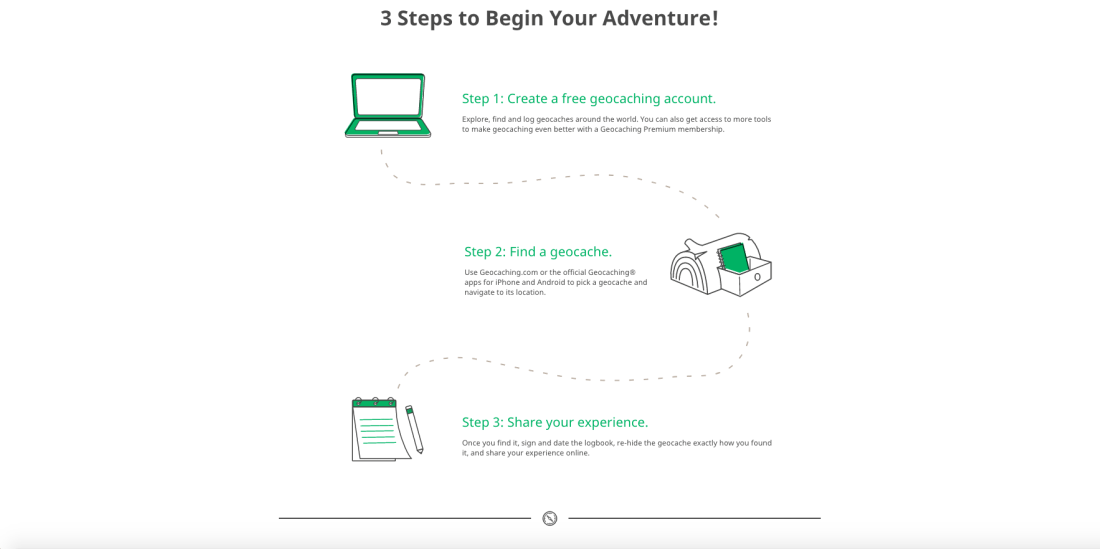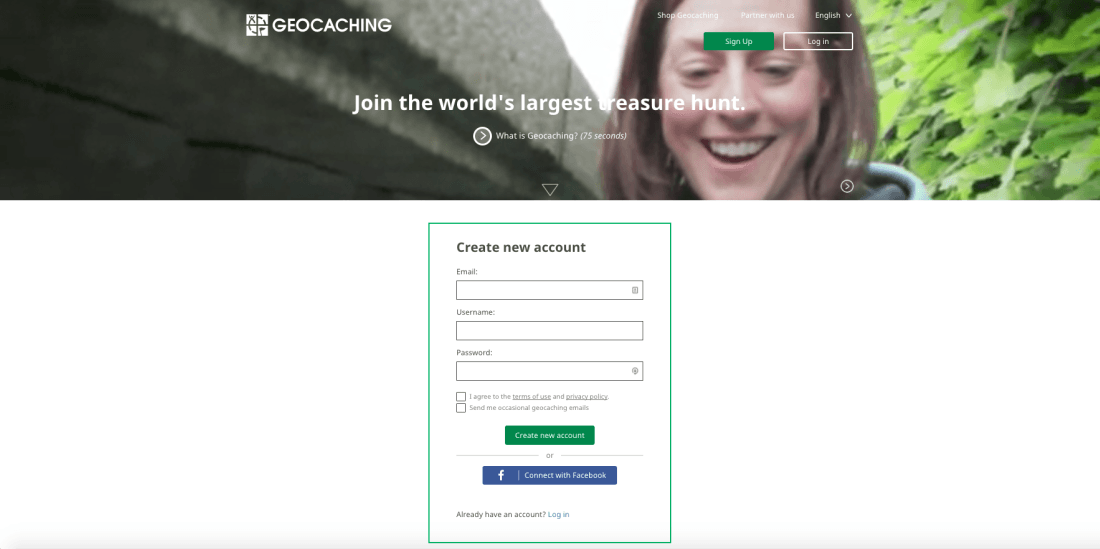
How much does the average American family spend on entertainment each year? According to data on consumer expenditures from the Bureau of Labor Statistics, the answer was $2,913 in 2016, an increase of 2.5 percent over the year prior. That’s a lot of cash in an economy in which wages are stagnant and the costs of essentials such as food, housing, and healthcare continue to grow.
Fortunately, there are many ways to reduce your family’s entertainment expenses without sacrificing every opportunity for fun. Spending an afternoon outside geocaching—instead of dropping a bundle on movie tickets and concessions, for example—is one increasingly popular option. RewardExpert recently spoke with Chris Ronan, community relations manager at Geocaching about how geocaching works and how you can get involved.

Fun, Free Outdoor Adventures
When Jeremy Irish. Elias Alvord, and Bryan Roth launched Geocaching.com as a hobby site in 2000, there were a mere 75 known caches around the world. Searching for them—or going geocaching—was still a little-known activity.
“Today, there are more than three million geocaches worldwide,” said Ronan. “But we’re still a strong, independent organization led by our original founders.”
While there are more than 830,000 active geocachers in the U.S., more than 375,000 in Germany, and more than 160,000 in the U.K., Ronan said all of these adventurers have one trait in common: curiosity.
“It’s easier now than ever before to exercise that curiosity,” he added. “There’s something in our DNA that drives us to see what’s around the next corner or over the next hill. Geocaching is the tool that people use to power that adventure. As the website and apps become increasingly easy to use, more and more people are tapping into geocaching as a low-cost way to connect with friends, get exercise, and explore.”
Starting a geocaching adventure is as simple as creating a free account on Geocaching.com and clicking the ‘Find Nearby Geocaches’ button on the website or in the app once you’ve downloaded it to your mobile device (iPhone and Android). From there, simply use the GPS on your phone (or another handheld GPS device) to navigate to the geocache coordinates given. When you find the cache, sign the logbook and put the geocache back where you found it.
“Our main feature is the functionality to search for geocaches,” Ronan explained. “Our website allows people to search for caches near them or in areas they plan to visit as well as filter search results by various criteria. Anyone can get started with a free membership and find tons of caches.”
A premium membership is also available for $30 per year.
“With a premium membership, you have access to additional functionality, as well as to caches whose owners have designated them as Premium Member Only caches,” Ronan said.

Geocaching Etiquette
To keep the activity fun for everyone, respectful geocachers carefully follow the rules. This includes avoiding venturing onto private property and leaving the geocache area better than you found it, even if that means packing out someone else’s trash.
While many geocaches only contain a logbook, others are stocked with family-friendly, inexpensive trinkets. If you find such a geocache and wish to take a trinket as a souvenir, you should leave another of equal or greater value. Suggestions from the Geocaching.com forum include tiny plastic toys, foreign coins, seashells, and polished stones.
Never include food or scented items in a geocache as those may attract animals. You should also avoid sharp objects, ammunition, and illicit items. Geocaching is a family-friendly activity and because geocaches can be located in urban locations and parks as well as remote areas, children may even go geocaching on their own.
If you search for a particular geocache and fail to find it, take time to log on to Geocaching.com and log it as “Did Not Find.” This will alert other geocachers that the cache is difficult to find or may be missing. It will also encourage the cache owner to check on it.
Finally, never move a geocache, even if you think you can hide it a little better than the owner did. Doing so will make it more difficult for geocachers to locate it, and you don’t want to spoil their fun.
To sign up for a geocaching account, get geocaching search tips, and even learn how to go about hiding a geocache of your own, visit geocaching.com.
